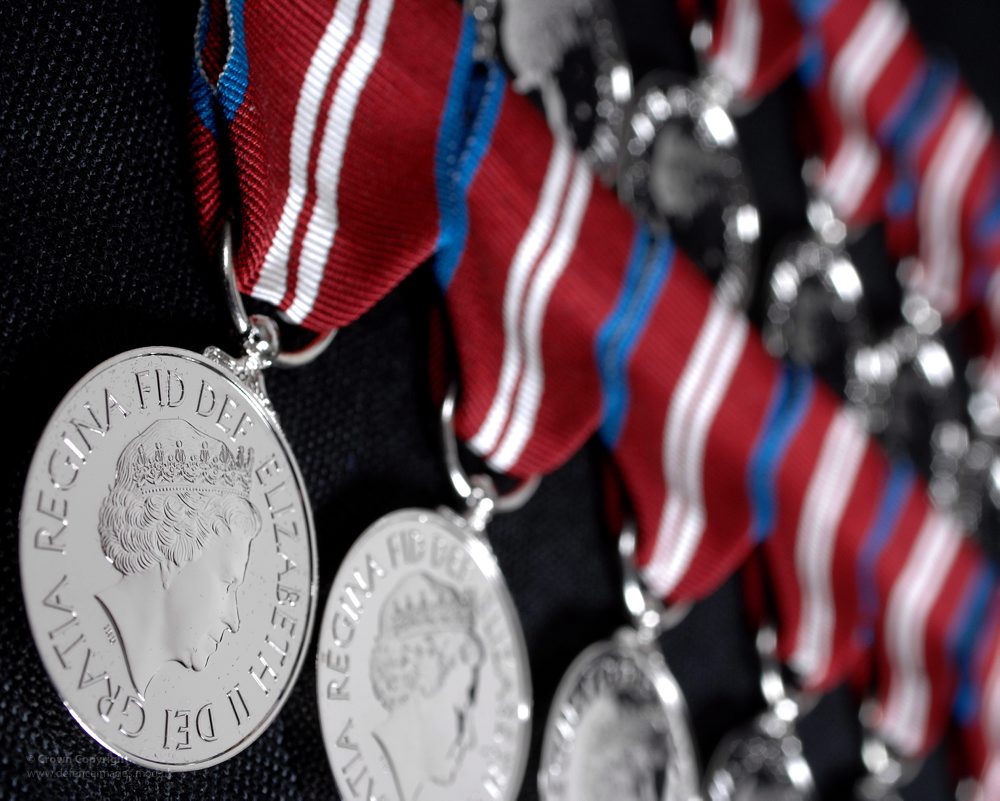
Defence Images/Via Flickr
Have you ever wondered how to become a knight or why knighthood is still so important in England? Do you know what “OBE” means or why it’s associated with medals and ribbons? You may have heard of the British honours system (which requires the traditional vowel enhanced spelling) but you might not understand all of its intricacies. Here is a short guide for the most well-known honours and their meanings. And if you want to experience British culture firsthand with your students, start planning an educational tour to England.
According to the BBC, “honours are awarded on merit, for exceptional achievement or service.” Anybody can recommend a British national for an honour and most awards go to public figures or civil servants. Nominations are divided into subject areas and assessed by eight committees comprising both senior civil servants and independent experts. Their assessments are passed to a selection committee that produces the list that is submitted to the Queen through the prime minister. The Queen formally approves the list of recipients and the honours are published in the official Crown newspaper, the London Gazette.
Honours are usually awarded on the Queen’s birthday (the first Saturday in June) or around New Year’s Day. The main honours include:
Knights Bachelor – If you’ve ever wondered how to become a knight, it’s (unsurprisingly) a difficult thing to achieve. People are awarded knighthood for extraordinary public service. From the days of medieval chivalry, the method used to confer the knighthood is known as the “accolade,” which is the touch of a sword by the Sovereign.
Those receiving the award are called “Sir” (except for clergymen who do not receive the accolade) and their wives “Lady.” Women receiving the honour are styled “Dame” but do not receive the accolade. Sir Mick Jagger was knighted (in 2003) despite the criticism of some fans and, famously, Keith Richards.
Orders of the British Empire – King George V in 1917 created these honours during World War I to reward services to the war effort by civilians at home and service members in support positions. The orders are now awarded mainly to civilians and service personnel. Ranks in the Order are Knight or Dame Grand Cross (GBE), Knight or Dame Commander (KBE or DBE), Commander (CBE), Officer (OBE) and Member (MBE). The last three of these are perhaps the most well-known and certainly the most anticipated when honours are announced as this is where those in areas such as sport or the arts will be honoured. In 2012, Helena Bonham Carter was honoured with a CBE.
The Order of the Bath – An order of chivalry founded in 1725 for service of the highest caliber. The order has a civil and military division. The Order takes its name from the symbolic bathing, which in former times was often part of the preparation of a candidate for knighthood.
Order of St Michael and St George – This Order was founded by the last King of America (George III) in 1818 and is awarded to British subjects who have rendered extraordinary and important services abroad or in the Commonwealth.
Royal Victorian Order/Medal – By 1896, prime ministers and governments had increased their influence over the distribution of awards and had gained almost total control of the system. Therefore, Queen Victoria instituted the Royal Victorian Order as a personal award for services performed on her behalf. Today this honour is still awarded in recognition of services to the royal family. The Royal Victorian Medal, which has three grades – gold, silver and bronze – is a circular medal, which is attached to the ribbon of the Order. It is possible for one to hold both awards.
Royal Red Cross – Founded in 1883 by Queen Victoria, this award is confined to the Nursing Services. It is said that Florence Nightingale suggested to Queen Victoria the founding of this decoration.
If you’re reading this in the U.S., you might be feeling a little left out. Fear not, the Foreign Secretary recommends these honorary awards to foreigners, too. These awards are for any nationality. Of course, the honours system is not for everyone (see Keith Richards, above) and the government was recently required to publish a list of those who had refused honours in the last 50 years of the 20th century, as long as they were now deceased. Despite this, the system remains popular with the public.
Now that you know how to become a knight, find out more about England’s history on one of our tours.
Editor’s note (2020): This piece has been updated for clarity, accuracy, and relevance.
Related articles
